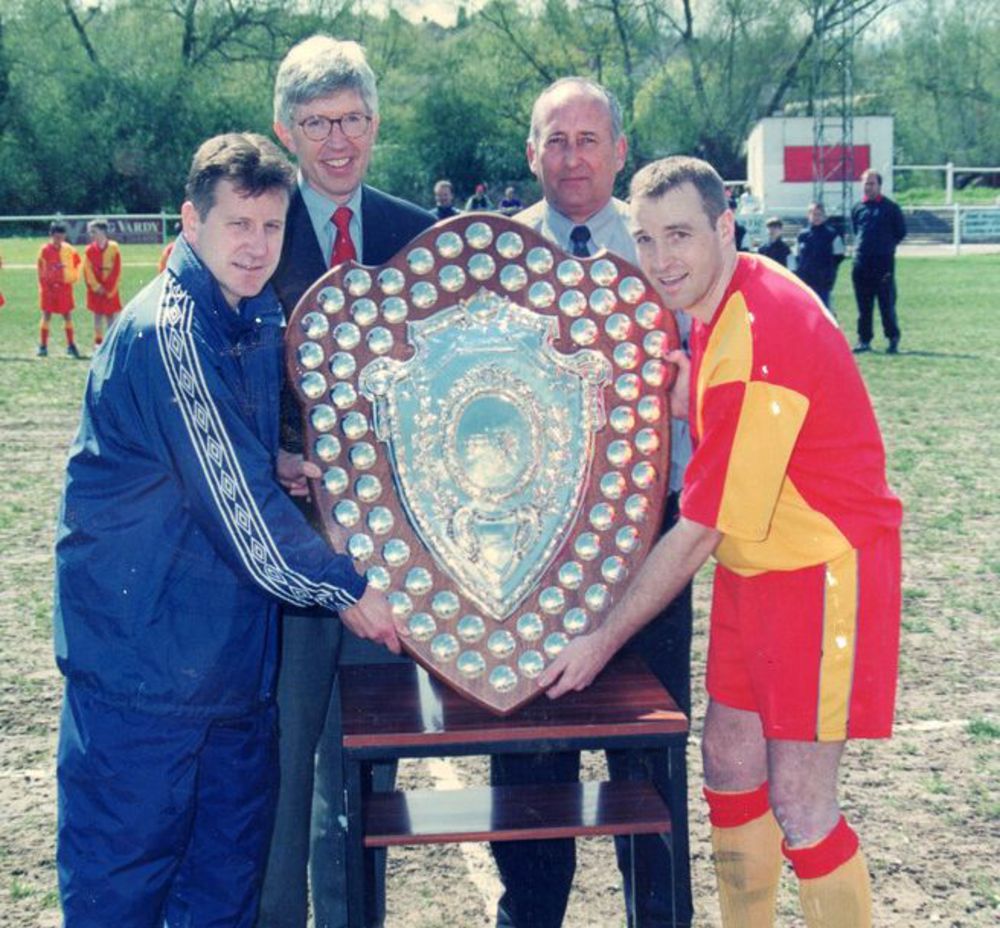
Kevin Brock
DAVID BEST was a very good goalkeeper in his day.
Born in Dorset, his playing career began with his local club Bournemouth as a 16-year-old in 1960.
He went on to make over 250 appearances for the Cherries before being transferred to Oldham Athletic in 1966.
He played around 100 times for the Latics before signing for Ipswich Town in 1968.
He arrived before Bobby Robson took over at Portman Road but stayed as first-choice keeper until 1974 when he firstly lost his spot to Laurie Sivell and then to newly signed Paul Cooper.
After making 168 appearances for the Tractor Boys he moved back to the south coast to sign for Portsmouth in 1974 in a £22,500 transfer from the Suffolk club and became first-choice keeper for the 1974/75 season.
His career then turned full circle, returning to his first club Bournemouth and then settling back home in Wareham, Dorset.
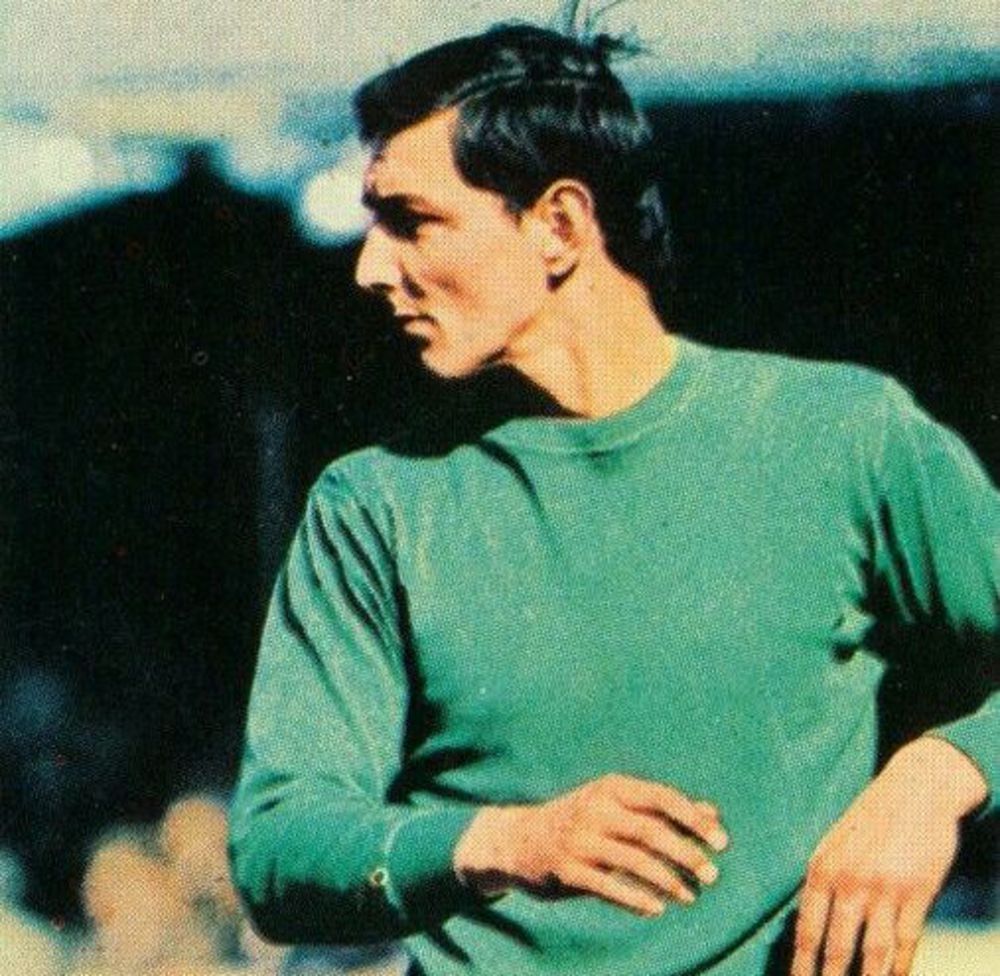
In 1976, Best (right) was appointed as player-manager of Southern League Division One South club Dorchester Town.
The Magpies had only switched from the Western League four years earlier and had flirted with the bottom of the table for the first four seasons and a succession of managers, including Len Drake, Jim Daily, Jim McManus and Ronnie Bolton tried and failed to achieve anything better than 14th place.
However, after Best took over, he utilised his links with old club Bournemouth to attract the likes of former Ipswich team-mate John O'Rourke, ex-Aldershot stalwart Jack Howarth and the mercurial Harry Redknapp to the Avenue Stadium and Dorchester finished fourth in 1976/77 and then tasted success when they finished runners-up to Margate in 77/78, going unbeaten in the final 16 matches of the season.
After a poor first campaign as a Premier Division club when they finished second-bottom, things got better for the Magpies in 1979/80 when they won the South Division.
At the end of the previous season the Alliance Premier League was established as the new, national top division of non-League football.
Thirteen clubs from the Southern Premier Division joined the new league, leading to a restructuring of the Southern League in which it was divided solely into Midland and Southern divisions.
Bridgend Town won the Midland Division, whilst Dorchester won the Southern section.
Bridgend were declared Southern League champions after defeating Dorchester 3–0 at home and 2–1 away to win a championship play-off.
Former Spurs and England striker Martin Chivers took over as Dorchester manager briefly after that, although Best continued to manage his local team, Wareham Rangers, in the Dorset Combination League whilst working as a transport manager for Westwind Air Bearings.
He emigrated to South Africa in 2007.
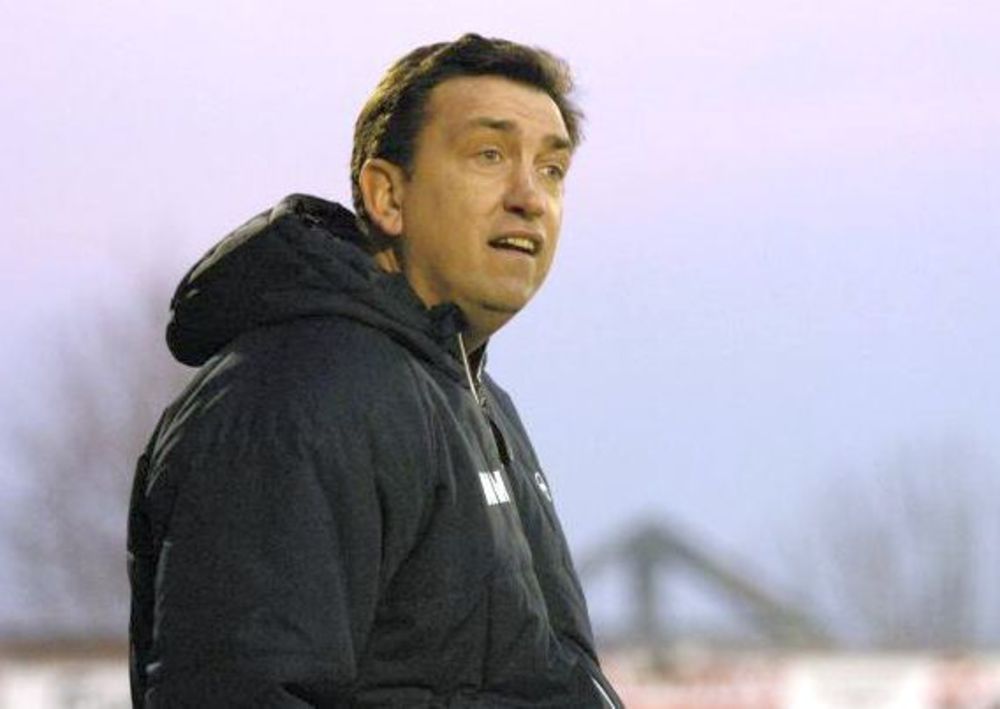
After a period of stability under another former Bournemouth stalwart, Keith Miller, who led the club back into the Southern Premier Division in 1986/87, it wasn`t until former Wimbledon `Crazy Gang` member MARK MORRIS (left) took over, initially as player-manager, that fortunes took a definite upturn for Dorchester.
Under the guidance of Morris, who made 170 appearances for the Dons and over 200 for AFC Bournemouth, Dorchester’s young squad regained their Premier Division status within two years, defeating King’s Lynn on the final day of the 2002/03 season to take the Eastern Division title ahead of Eastbourne Borough, having won 16 of their last 17 matches and scoring 114 goals in their 42 league games.
A season earlier the Magpies had picked up the Southern League Cup for the first time, again defeating King’s Lynn in a 4-0 aggregate victory in the final.
The first season back in the Premier Division was a difficult one but the club succeeded to reach the end-of-season play-offs, where two fine victories over Bath City and Tiverton Town saw Dorchester become a Conference club for the first time in the newly formed Conference South division.
After spending ten years as a Conference South member, the Magpies returned to the Southern League after finishing bottom of the table in 2013/14.
And it`s fair to say that the club have struggled since then, with a best finishing place of 13th coming in 2015/16.
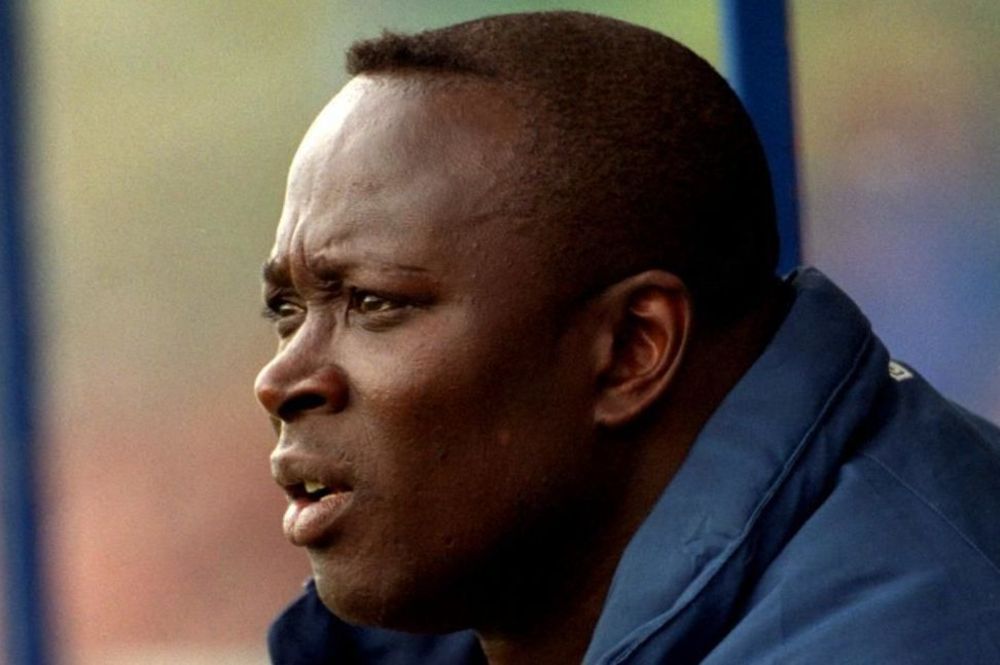
Nuneaton Borough appointed former player in BRENDAN PHILLIPS (right) as their new manager ahead of the 1995/96 season.
The ex-England semi-professional international graced Manor Park for several seasons with his silky-smooth skills back in the 1970s and 80s, but also on the managerial front where he did a splendid job at Stafford Rangers.
However, a lack of cash, injuries and misfortune bedevilled him at Marston Road as Rangers slumped into the lower reaches of the Conference and he parted company with the club in 1994.
But Phillips was immediately successful with Boro, leading them back again to the Premier Division as Midland Division champions by an eleven-point margin from runners-up King`s Lynn.
In Nuneaton`s first campaign back in the Premier Division, seventh place was attained, and although they dropped down to twelfth in 1997/98, the seeds were being set for a fantastic season that followed.
Phillips` Nuneaton stormed to the Premier Division title with a staggering 90 points – a full 23 ahead of second-placed Boston United.
Phillips was voted the Southern League manager of the year for the second time in four seasons after overseeing Boro’s magnificent title charge.
He was later voted the non-League manager of the year at a top awards ceremony in London.
However, Phillips was unable to repeat his success at Conference level and he was sacked in September 2000, with his assistant Steve Burr initially taking caretaker charge and then being appointed permanent boss at the end of November.
KEVIN BROCK was a highly rated midfielder who started out with his local team, Oxford United, where he signed professional terms in 1979.
Already an England Schoolboy international, he went on to win four England under-21 caps and also played once for England B.
After playing a starring role in Oxford`s 1986 League Cup Final win over Queens Park Rangers, Brock, who had made 250-plus appearances for United, followed manager Jim Smith around, first to QPR, who paid Oxford £260,000 for him, and then to Newcastle United for £300,000 in December 1998.
He played over 150 times for Newcastle but fell out of favour and, after a brief loan spell at Cardiff City, Brock went to Stockport County and then Conference sides Stevenage Borough and Yeovil Town before returning nearer home to join Oxford City in 1996.
He took over as City`s player-manager a year later but was sacked after just seven months in charge as the club were relegated from the Isthmian League Premier Division at the end of the 1997/98 season.
He briefly joined then-Hellenic League Premier Division side Banbury United as a player and then league rivals Bicester Town before returning to Banbury before the 1999/00 season as player-manager, taking over from Phil Lines.
In his first season, he led the team to the Hellenic Premier Division title followed by promotion to the Southern League Premier Division four years later.
After three seasons at that level, Brock resigned in 2007 because of budget cuts.
He later managed back in the Hellenic League with Ardley United.
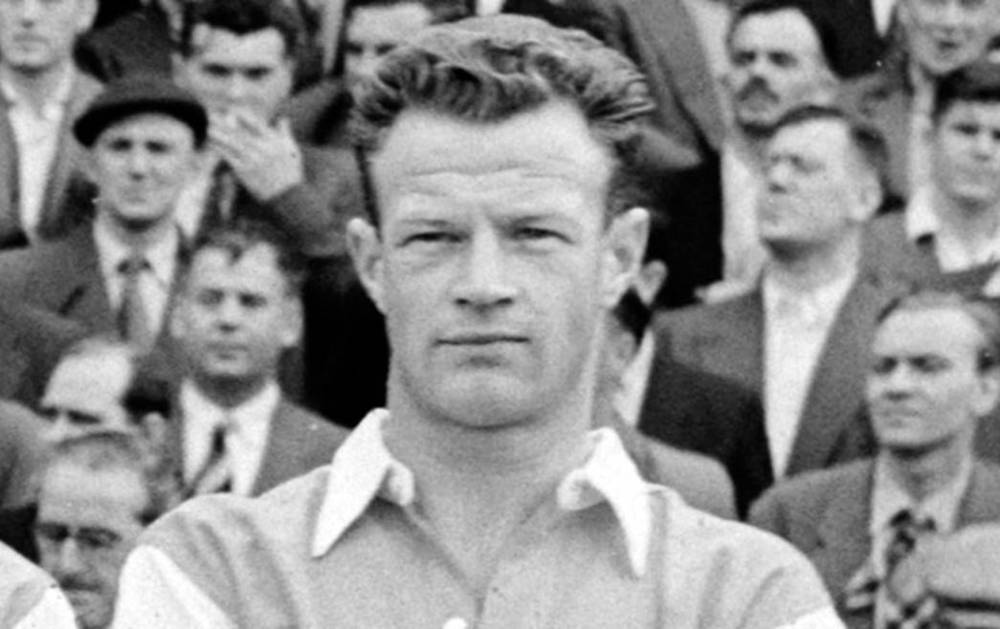
STAN CHARLTON (left) was a former England Amateur international who played in the 1952 Helsinki Olympic Games whilst with Isthmian League side Bromley.
He turned professional with Leyton Orient after returning from the Olympics and spent three seasons with the O`s, making 150 appearances at right back.
In 1955, Charlton was part of a £30,000 deal which also involved Vic Groves moving to Arsenal.
He played 99 times for the Gunners before re-joining Orient in 1958 and added 220 games to his O`s tally.
He retired to the south coast in 1965 but was persuaded to become secretary/player-manager of Weymouth, the reigning Southern League Premier Division champions.
Charlton had the unenviable task of replacing Frank O`Farrell in the Terras` hot seat.
The Irishman had taken over as Weymouth boss in 1961 and had finished third and seventh before leading them to the title in 1964/65.
But his achievements hadn`t gone unnoticed and he was lured away to manage Torquay United in the summer of 1965 – he later had an unsuccessful spell in charge of Manchester United of course.
Undaunted, Charlton guided Weymouth to a second successive Southern League championship in his first season in charge – and actually bettered the points tally by one, although, having lost the 64/65 top scorers Tommy Spratt, who followed O`Farrell, and Barry Hutchinson, who was sold to Lincoln City, they scored 20 fewer goals but conceded 15 less!
After his stint at the Recreation Ground ended in 1972, he worked as district manager for a major football pools company and retained a close involvement in the game by coaching Dorset's county side.
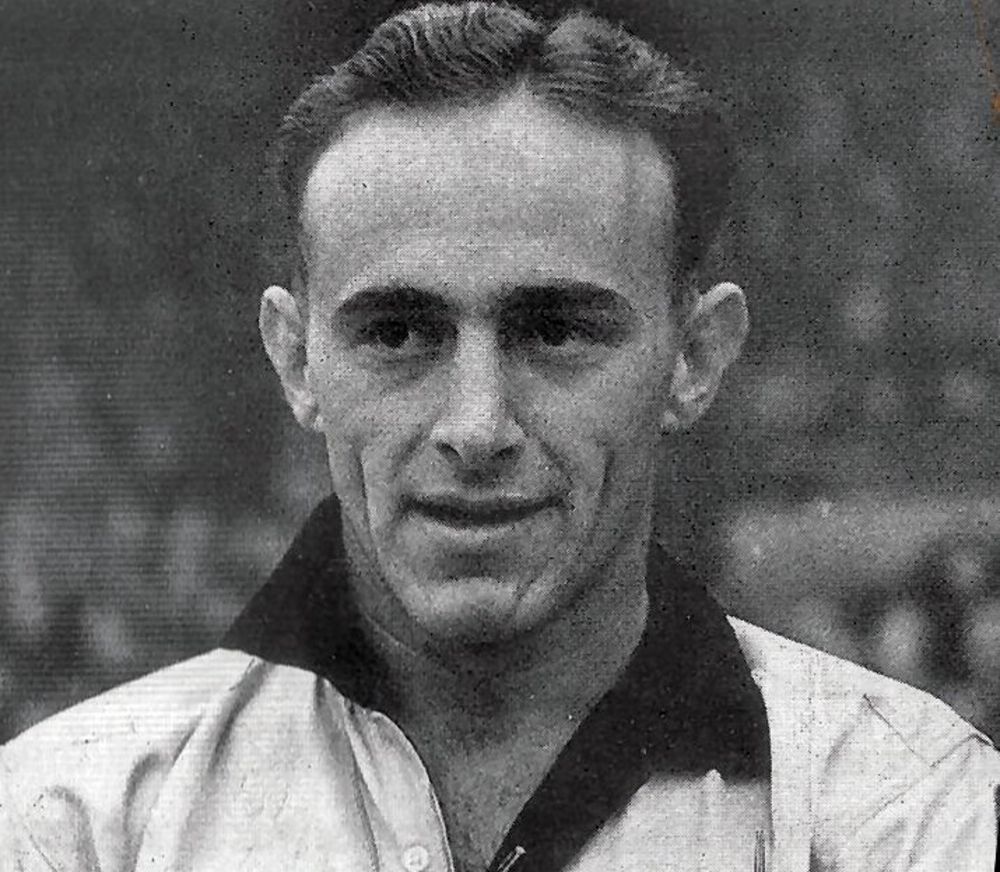
ALF ACKERMAN (right) was one of those centre-forwards of the 1950s and early 60s whose goal ratio was terrific.
Although performing mostly in the lower regions of the Football League, when he left Millwall to become player-manager of Southern League Premier Division club Dartford in 1961, he had scored 217 goals in 405 games!
Born in Pretoria, Ackerman was spotted playing for a South African XI against tourists, Clyde, in 1947.
They brought him back to play in the Scottish League and after two stints with Hull City– he scored on both debuts – and a spell with Norwich City, he signed for Derby County in March 1955 for a fee of £6,600 in a deal which also included his Tigers team-mate, winger Ken Harrison.
After a year and a half at Derby Ackerman was again on the move, joining Carlisle United in November 1956.
At Brunton Park he resumed his fearsome reputation, scoring 61 league goals in 97 starts.
In January 1959, the now 30-year-old Ackerman moved to Millwall, his final league club, where he played for two seasons.
In 1961 he was appointed player-manager at Dartford, a post he held for five years until 1966 while also running a newsagent shop.
He guided the Darts back up to the Premier Division at the first attempt in 1962 and although finishes of seventh twice and thirteenth were pretty unspectacular, he was reckoned to be one of the main reasons for there being a more professional outlook at Watling Street.
He left Dartford after they were relegated in 1966 and, after a spell out of the game, was appointed manager of another Southern League side, Dartford`s league and Kent rivals Gravesend & Northfleet in 1969.
He managed Fleet for five years, overseeing the emerging playing career of future England manager Roy Hodgson and achieving promotion to the Southern League Premier Division in 1971 – although they came straight back down again.
He left Gravesend in 1974, returned to his native South Africa and sadly died in July 1988 at the age of just 59.
Before Ackerman, LIONEL SMITH had been the only other manager to have achieved a title win for Gravesend.
Smith was one of many footballers who lost some of the best years of his playing career to war.
He joined Arsenal in 1939, just before the outbreak of the Second World War as an amateur left-back and signed professionally in August on the eve of the declaration of war.
With football suspended, Smith served his country in the Royal Engineers and played for Arsenal 17 times in the wartime league.
After VE Day, he played 181 times in the Gunners championship-winning side of 1947/8.
He played all the cup games of 1951/52 when Arsenal lost in the FA Cup Final and made 31 appearances in the championship-winning side of 1952/53.
He won six caps for England starting with the game against Wales in November 1950.
In June 1954, after a season in which he made only a handful of appearances he moved to Watford.
After one year at Watford, Smith then became player-manager at Gravesend in May 1955.
It was following Smith's appointment that the club began to reach its potential.
Smith drafted in former Arsenal team-mate Jimmy Logie in what was a massive coup for the Fleet at the time.
An outstanding Scottish international inside-forward, Logie, who made 296 appearances for the Highbury outfit, scoring 68 goals, sensationally took a £1,000 signing-on fee to join Gravesend when in dispute with Arsenal.
Logie, together with players such as Eric Day, a winger with almost 400 appearances for Southampton and 148 goals, Jimmy Scarth, formerly with Spurs and Gillingham and an inside forward who went on to become a stalwart for the Fleet with almost 200 appearances and 64 goals, and Bob Thomas, who played almost 300 games for Fulham and Crystal Palace, joined from league rivals Kettering Town where he had played under Tommy Lawton, helped the Fleet lift the Southern League title in 1957/58, the star-studded and attacking side scoring 135 league and cup goals along the way.
They were runners-up the following season, also lifting the Southern League Championship Cup, and crowds of 3,000–5,000 regularly flocked to Stonebridge Road.
The ageing side's influence began to wane, however, and after a 17th place in 1959/60, Smith called it a day and with the end of his management tenure, so ended the Fleet's first and perhaps most successful era until the 21st century.
Logie replaced Smith but without the same impact.

Most clubs are looking for volunteers. Find out more on the button below:
www.PitchingInVolunteers.co.ukAll the news and results in one place.
REGISTER